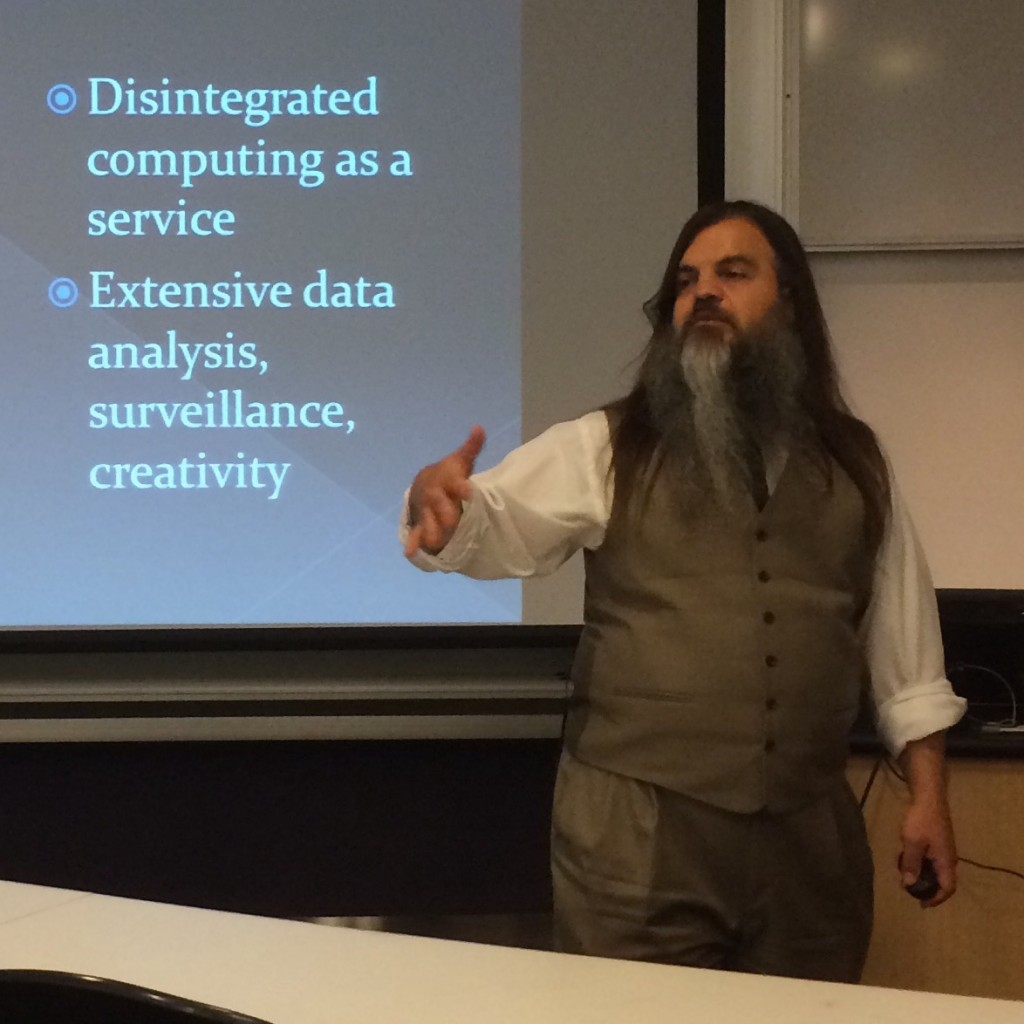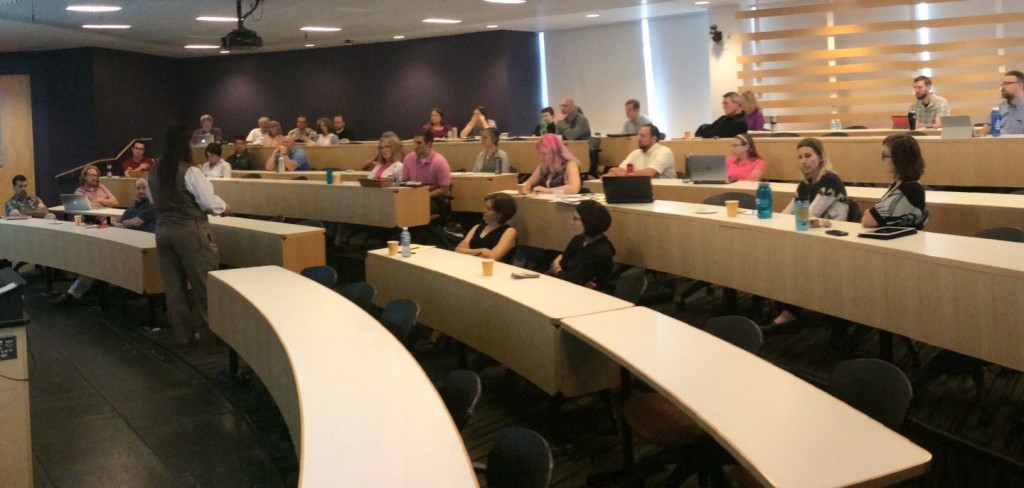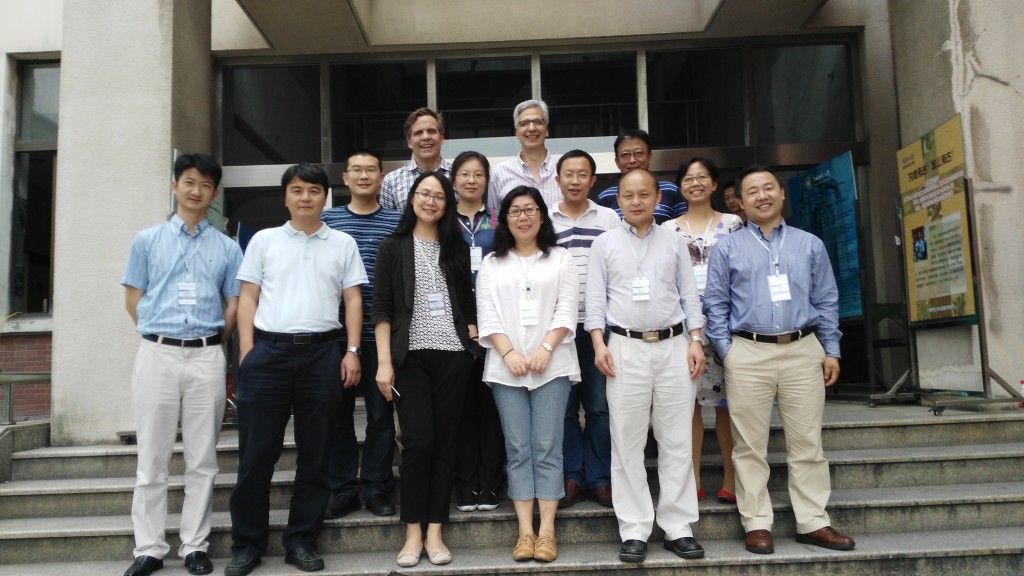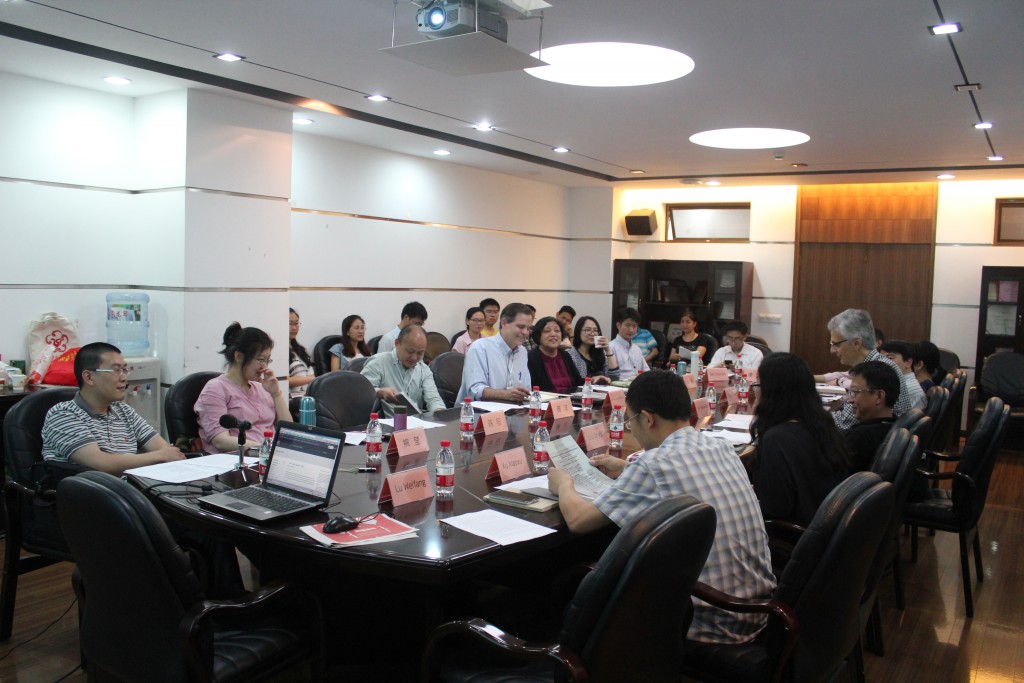By Ash Nichols (Walter E. Beach ’56 Distinguished Chair in Sustainability Studies & Professor of English)
My DHAC-funded Student-Faculty Summer Research Project (2015) was a complete success. My student researcher, Kerin Maguire, turned out to be a hard worker, an excellent researcher, and a writer with a prose style well in advance of her years. Over the summer, we produced a new website, Urbanatural Roosting: Planetary Living for the New Millennium, and wrote content for three (3) pages. Individual page links are included below the image:
These pages required extensive research—both library and online—as well as a wide range of reading from books, essays, and online materials. In addition, we added dozens of illustrations, often requiring permissions acquisitions, technical layout details, and digital design. We worked closely with the Dickinson Multimedia and I.T. staff to improve the look and technical details of the site as well.
Activities of Student Researcher
My student researcher, Kerin Maguire, was completely involved as a collaborator in every aspect of the work on our project. She researched, read, and wrote to at least the same extent that I did. In a number of instances, she was completely responsible for the addition of new material, from conception of the idea to all of the research, writing, and site design. In one instance, she even took her own photographs to illustrate the “Pine Barrens” section of our Natural Urbanatural Roosting page. Our page is her work as much as it is mine; this felt as completely collaborative as any student-faculty research project in which I have been involved. Even her academic plans for the coming semester—and two years—have been affected by our work.
Potential Long-Term Benefits of Project for Student
Kerin’s own words will form the basis for this part of our report. Please see the attached news story that appeared on the Dickinson Web-Page at the completion of our project:
Urbanatural Living, Digital-Style
The article clearly sets out a number of ways in which Kerin benefitted from our work together:
“It involved a lot of reading … Professor Nichols just kept handing me these stacks of books,” Maguire says with a laugh, “but now that I know a little more about this topic, I am interested and invested. It reels you in.”
Indeed, Kerin informed me as the project drew toward completion that our work had even had an impact on her future academic plans. She now wants to add environmental studies courses to her academic program as an English major:
As the weeks progressed, Maguire began to find connections to the work during non-research hours; an article in her hometown newspaper, for example, was the catalyst for her final post of the summer. She also uncovered environmental issues in familiar settings—in the pinelands of her home state, and along the fragile shoreline of Cape Cod, a favorite family-vacation spot, where the population has increased 400 percent in the past 40 years, creating significant pollution. “I go there all the time, and I never knew there was a problem,” says Maguire, who plans to keep contributing to the portal, at Nichols’ request. “Once you learn about statistics like that, how can you not want to share them with the world?”
This is a perfect example of the way our project worked. I would assign a specific section of our web-portal to Kerin, or she would come up with her own suggestion, as in our “Cape Cod” entry or our “Artificial Reefs” section. One final quote from her will make clear the future benefits of our work together:
I have gained a tremendous amount of knowledge on the subject and am interested in finding ways to implement the concept of urbanatural roosting into my own life and that of my family. . . In addition to learning about fascinating subject matters, working closely with Professor Nichols improved my writing and research skills. . . I also improved my technological skills using WordPress, as well as editing and revising my work.
There is clearly nothing for me to add to Kerin’s own words in this regard.
Future Plans
Like my earlier website, Romantic Natural History: 1750-1859 (praised by the New York Times, the BBC in London, M.I.T., and others), the Urbanatural Roosting site will continue to grow over the coming years. I have assured Kerin that she is welcome to continue work on this resource at any time she would like. She is welcome to make additions to our existing pages or propose new cities for our Urban Urbanatural Roosting page or natural sites. I did the same in the past with students who worked with me on Romantic Natural History, and two of the three took me up on this offer and added to the site after their summer research assignment had ended. In addition, two of my research students have said that they got their first job after graduation at least partly as a result of being able to show their future employers the work they had done on our web-portals and web-pages.






